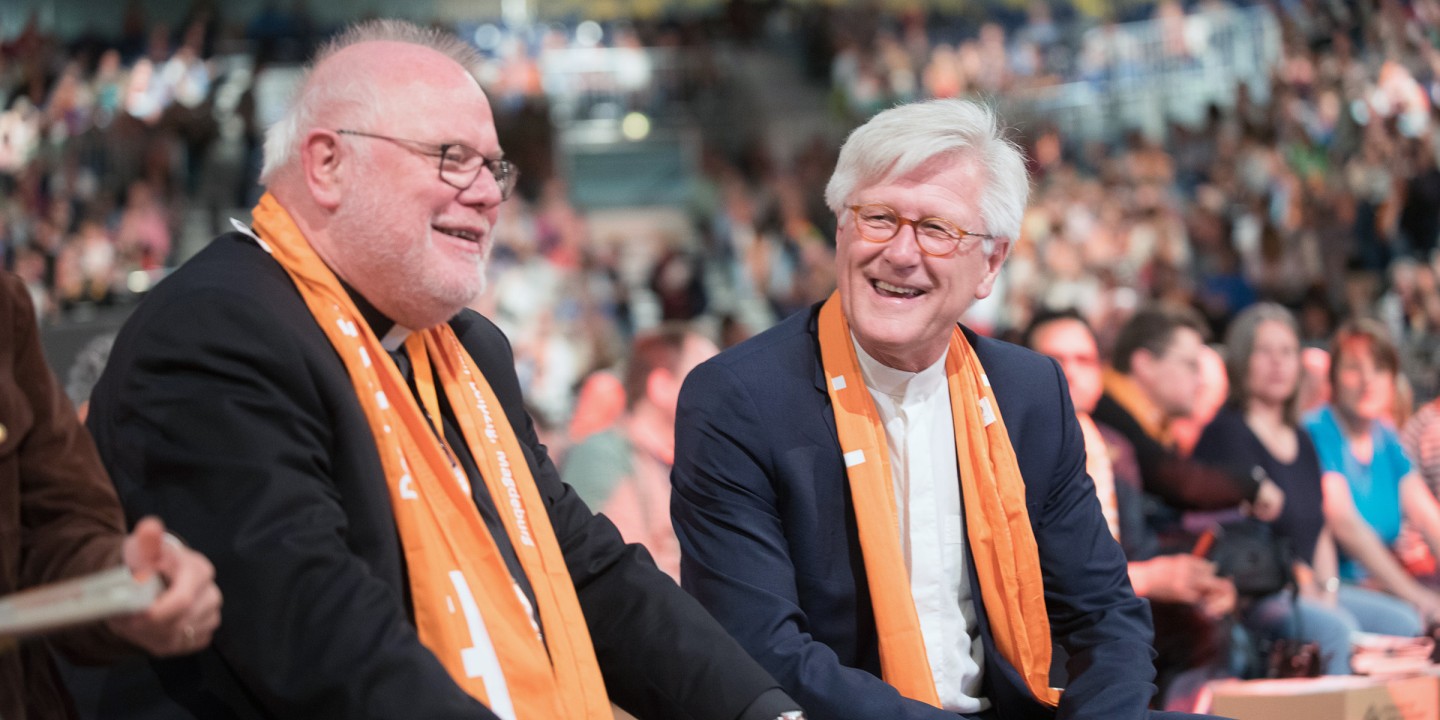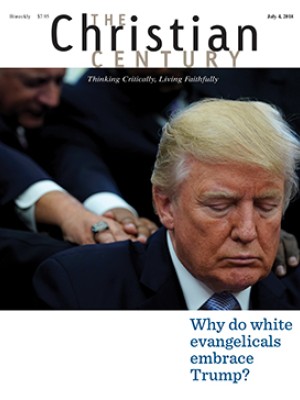Bavarian leader puts crosses in state offices amid anti-immigrant backlash
The national heads of Germany's Roman Catholic and Protestant churches have condemned Markus Söder's cross edict.

The governor of Bavaria, in southern Germany, has ordered that crosses be displayed at the entrances to government buildings across his state.
Markus Söder has presented the move not as merely a reflection of the values Bavarians share. The cross “has a defining effect on the identity of our society,” and hanging it in public offices shows “our Bavarian identity and way of life.”
Critics have denounced the order as a bald effort to woo Bavaria’s traditionally pious and heavily Catholic conservative voters away from the far-right Alternative for Germany, an anti-immigrant party that claimed 94 seats in the country’s parliament in federal elections last year. AfD’s fortunes have risen on a backlash against the influx of over a million migrants since 2015, mostly Muslims fleeing the Middle East.
Read our latest issue or browse back issues.
Söder, 51, an active Lutheran church member, became premier of the majority Catholic state in March after an internal power struggle within the Christian Social Union, the state’s largest party. In upcoming state elections, opinion polls indicate the AfD could win 13 percent of the vote—a greater percentage than it took in the national election last October. Many AfD supporters are former CSU voters looking for an even tougher line on migrants than Söder has been taking.
CSU politicians jumped aboard Söder’s cross campaign, denying that it excluded anyone, including non-Christians. While a national poll showed that two-thirds of Germans rejected Söder’s new rule, polls of Bavarian voters indicate that 53 percent support the cross mandate against 42 percent who oppose it.
The national heads of Germany’s Roman Catholic and Protestant churches—both of whom live in the Bavarian capital, Munich—have condemned the Kreuzerlass (cross edict) and spoken out on behalf of immigrants.
“If the cross is seen only as a cultural symbol, then it’s been misunderstood,” said Cardinal Reinhard Marx, the Catholic archbishop of Munich and chairman of the German Bishops’ Conference. In his view, Söder’s decision brought “division, agitation, and confrontation.”
Heinrich Bedford-Strohm, Munich’s Lutheran bishop and head of the Evangelical Church in Germany, said ordering the cross to be displayed as a symbol of political identity degraded its meaning.
“That means loving your enemy, helping the weak, a commandment of love for all, instead of using the cross to ward off others,” he said.
Despite national leaders’ criticism, a few church figures voiced their approval, including at least one bishop. And some 80 Catholic and Protestant theologians issued an ecumenical statement of support, saying: “The cross stands for human dignity founded in God.” Bavaria already has many crosses on public squares, on mountaintops, and in public offices, so extending this to all offices was a natural step, they said.
Aiman Mazyek, chairman of a national Islamic association, said Muslims had no problems with displaying religious symbols in public, but he noted that minority faiths don’t always feel they have the same right to do so as Christians.
“The double standard of accepting Christian symbols but barring Muslim, Jewish, or other ones from the public sphere is unacceptable,” he said.
Jewish leader Josef Schuster also had no fundamental objection to crosses in public buildings but wondered why they should be displayed in offices also used by non-Christians, asking “What is this cross supposed to mean?”
Pushback from critics of the cross decision has prompted the Bavarian government to grant exemptions to three state-financed institutions most likely to defy the rule: universities, theaters, and museums. Bavaria’s police stations, tax offices, courts, and other government offices are still supposed to display a cross near their entrance.
The state interior ministry, which is responsible for applying Söder’s order, has said it would not send agents around to check on compliance.
A judge in Miesbach, Bavaria, removed a large cross from his courtroom wall before the trial of a young Afghan man accused of threatening to kill another refugee who converted to Christianity.
“How can I get him to stop thinking there is a jihad between Christians and Islamists?” Klaus-Jürgen Schmid asked. “I didn’t think it was right to sentence him while visibly sitting beneath a cross.” —Religion News Service
A version of this article, which was edited on June 15, appears in the print edition under the title “Bavarian leader puts crosses in state offices amid anti-immigrant backlash.”





